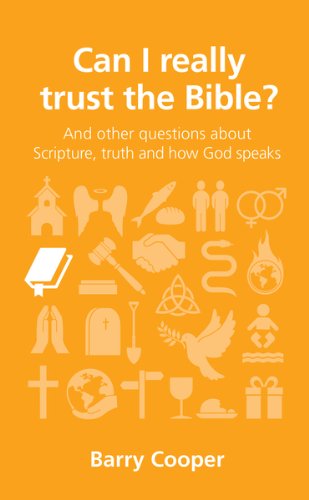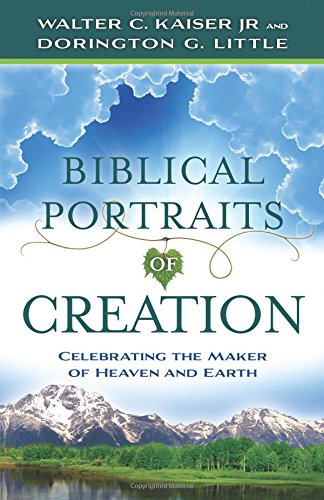In Summary: Luke’s Gospel begins with background information. Luke 1 is one of the longest chapters of the New Testament. It may be the longest, but I haven’t double-checked that against anything, so I’ll not assert it here. In this chapter, Luke establishes his purpose for writing and then moves forward to the information about the impending coming of the Messiah, Jesus of Nazareth.
This chapter touches on the experiences of Mary, Elizabeth, Zacharias, and Gabriel. Notably absent is Joseph, Mary’s betrothed husband, whose angelic visit comes in Matthew 1 (for those of you harmonizing Gospels), mentioned here only in connection to Mary. Also worth noting is the piety Luke notes in both women mentioned. Mary and Elizabeth are noted for piety, Elizabeth perhaps more even than Mary, though Mary’s commendation is from Gabriel himself. Luke renders the judgment on Elizabeth.
Further, Luke spends much of the chapter on Elizabeth, Zacharias, and John (who will be called John the Baptist). While the birth of Christ is foretold and the beautiful passage known as the Magnificat are both here, Luke 1 clearly highlights John’s origins as we see Zacharias’ vision, Elizabeth’s joy, and the praise of John by the people (Luke 1:66) as they marvel at what he might be.
In Focus: John, however, takes the proper approach to the praise and wonder of the people. Certainly taught by his parents about the purpose of his life, John withdraws from the public life of his hometown. Rather than stay to be seen to “increase in wisdom and stature and in favor with God and man” (Luke 2:52) as Jesus does, John heads into the deserts of the Judean wilderness.
It is worth noting that we do not know when John made his withdrawal—a hyper-literal reading of Luke 1:80 would have him departing soon after birth. While it is possible that Zacharias withdrew from active priestly service and took his family to the wilderness for seclusion, I would suggest the text be read as John willfully withdrawing, and that would place his departure around his age of adulthood. Likely in his teens, a time when most young men are chasing after things to satisfy desires or please themselves (present company shamefully included), John instead made the choice to remove himself from temptation.
Not only the temptation for him to be sidetracked and sin, but also the temptation to seek his own fame. Further, he spares the town the temptation to set John up as a substitute for the true coming Messiah. This shows a wisdom that reflects both the hand of God upon him and a knowledge of the Word. That knowledge covers both himself and Jesus.
In Practice: First off, we must establish that Jesus has already come, and when He comes again it will be without any additional warning. So, there are no more John the Baptists out there. I would immediately warn you from anyone who compares himself to John, Elijah, or any other Biblical prophet. There is no Scripture to support the idea that infallible prophets roam about anymore.
Second, let us consider John’s actions. He is at risk in his hometown, he is at risk in the spotlight. He recognizes a need for maturity and a need to step up at the right time. He also knows, as we see in John 3:30, that Jesus is more important and he cannot get in the way of the message and the Messiah.
Practically speaking, we should note the same things. Our risks run down the same rails, and typically start by being in the spotlight before we are mature enough for it. I would name names here, but those examples will have already flashed and burned before too much longer and the point will still be valid: a maturity that shows in character should be developed before someone steps into the spotlight.
Further, the spotlight should find them, being faithful, rather than be sought out. After all, John reappears on the stage of events still in the desert. People go to him as the Spirit works through him. He steps forward in obedience, has his moments to point to the Messiah, and then is gone. So should we be, especially those of us with positions of trust in the church. The moment that a minister stands in the way of the Messiah? Or sets himself in the place of Him? That’s the moment he has to step away.
For this reason, it is valuable that all who would preach of the One-Who-Has-Come-and-Will-Come-Again should spend some time in the desert. Likewise, I think we see that God brings his people through that desert. It gives us strength, perspective, and a great place to begin. Are you in the desert? Then study the Word, pray, and look for the work that God brings. It will be amazing..
In Nerdiness: Can’t really go through Luke 1 without talking about Theophilus and Luke’s purpose in writing. Generally speaking, it’s thought that Luke wrote Luke and Acts as a two-volume work. Some suggest that it was intended to be a 3-volume work, and this explains Acts’ abrupt ending. I’m not sure.
It is clear that Luke’s biography of Jesus and the acts of the followers of Jesus is similar in style to many Greco-Roman biographies. You have the Divine Announcement, the herald, the life of the important person (Jesus, in Luke’s case), and the results of their life. Luke is clearly using that style.
So is Theophilus a real person? The name can be taken as what it means: Friend of God. Or it can be a person. We don’t know. One theory out there is that Theophilus is Luke’s name for the trial judge in Paul’s case, explaining the ending of Acts. The result of Paul’s house arrest? It depends on Theophilus and how he receives this.
I’m not sure I buy that, but it’s feasible. Clearly, though, we know this: Luke wrote knowing other Gospels existed, and sought to establish a clear record as well. That’s valuable to keep in mind: Luke knew multiple witnesses were valuable, and added his.





 It’s also a bit lower on my reading level. I thought it would make a nice change of pace for my reading, and for yours. It also provides the opportunity to push back against some of the criticism that I see Bob and Larry draw from many of my fellow grumpy Baptist bloggers. We should keep in mind that they are vegetables, not theologians, and are therefore entitled to be simple and silly.
It’s also a bit lower on my reading level. I thought it would make a nice change of pace for my reading, and for yours. It also provides the opportunity to push back against some of the criticism that I see Bob and Larry draw from many of my fellow grumpy Baptist bloggers. We should keep in mind that they are vegetables, not theologians, and are therefore entitled to be simple and silly.
